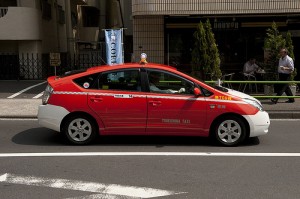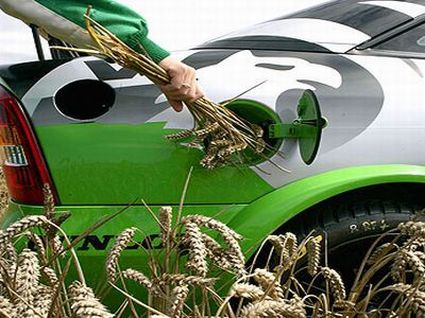Costa Rica News – Well this is not going to work. Costa Rica’s goal is to become Carbon Neutral by the year 2021. However, this law is not going to do much to do much to get them there. When it comes to becoming “green” the changes need to be both mandatory and offer companies and individuals financial savings. The reasons this will fail to do much will be stated at the conclusion of this.
 The Government intends to offer more favorable financing conditions for both taxi drivers and bus drivers change their old units with less polluting new vehicles.
The Government intends to offer more favorable financing conditions for both taxi drivers and bus drivers change their old units with less polluting new vehicles.
This is one of the government strategies to make Costa Rica carbon neutral by 2021.
Being carbon neutral means that the country can match its emissions of carbon dioxide (CO2) with equal amounts of oxygen and, thus, not increasing the greenhouse effect or causing climate change.
René Castro, Minister of Environment, said yesterday that taxi drivers that change their hybrid unit (electricity and fuel) could get a 100% exemption from taxes.
In addition, the chief said he was in “talks” with developers of hybrid vehicles in China, Korea and Japan to seek preferential purchase prices. You never would have though China would be part of this would you? (lol)
This means that the broker in Costa Rica can get the units at a price even lower.
Finally, Castro said that it intends to apply the same strategy to import buses that are more environmentally friendly, or to work in the conversion of buses from diesel to buses powered by non-fossil fuels (biodiesel, for example) .
The minister did not refer to any particular company or when carriers could begin to renew the fleet, but most likely they will be Chinese.
This proposal was presented yesterday, after a series of presentations on the progress of the country to become carbon neutral.
According to data released by Marianella Feoli, Fundecooperación executive director, in 2021 the country will release 21.7 million tons of carbon dioxide.
Reason this will fail:
1. It is not mandatory to do the switch, even though they are offering 100% tax credit it costs money to sell your current vehicle and change to another vehicle. As we see everyday in Costa Rica they do not like change and although the financial benefits may be worth it, it still causes current day work and seeing the future benefits of current actions is not a Costa Rica characteristic in most cases.
2. They do not have the biofuel production in Costa Rica to fuel these new environmentally friendly busses they are speaking about. they would need to import and the cost of fuel because it is not in large scale production it will increase the price of fuel for the busses and that in turn will increase the cost of public transportation and this will make people want the old busses back.
3. This is all based on hypothetical items, if we can get biodiesel, if we can negotiate contracts with the car manufacturers, if the people are willing to change, if we can import busses that are more environmentally friendly. I think the Costa Rican government thinks they wave a magic wand and this happens. Even if they were to able to get the contracts in place for the vehicles, if anyone knows anything about biofuel production, it would take 5 to 7 years to get the production needed to fuel a fleet of busses and that is if they planted today.

